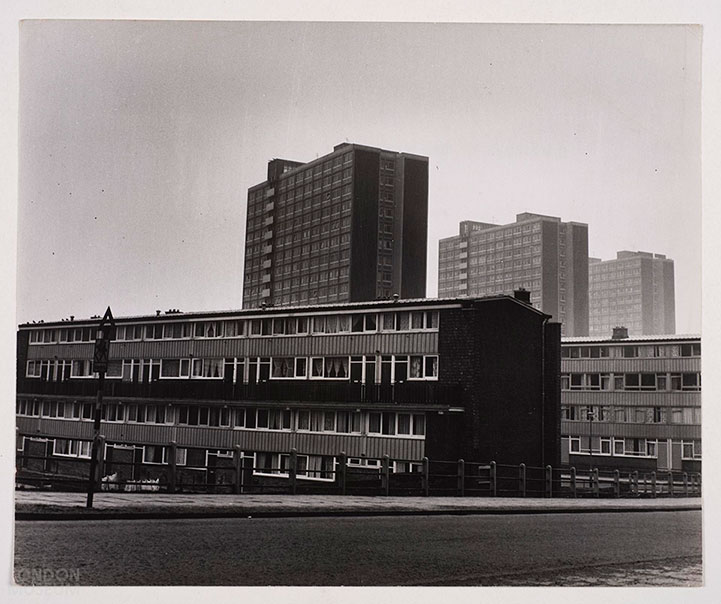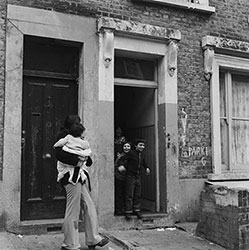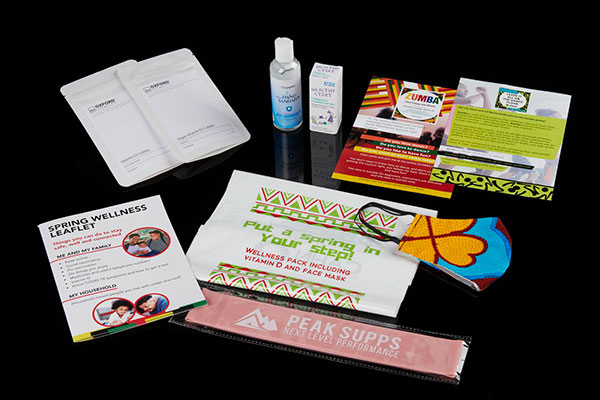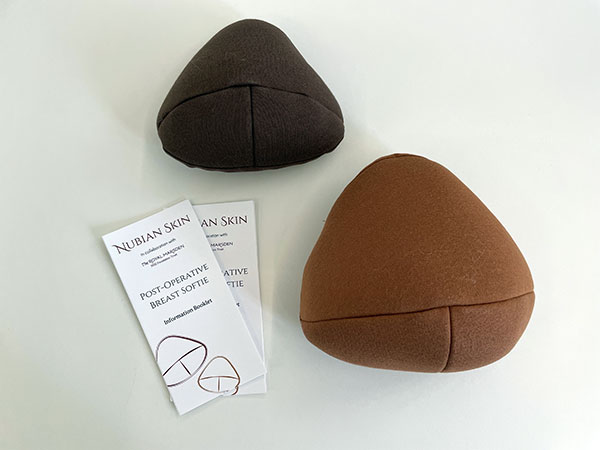Banner image: Gateshead council housing, 1963. Henry Grant/London Museum.
Work, lifestyle and income all impact on adult physical and mental health. But perhaps nothing has been as closely scrutinised as the effect of housing. The Fabian Society’s 1913 study, ‘Round About a Pound a Week’, suggested that renting cheap but damp basement rooms increased infant mortality. In 1920s Bermondsey, meanwhile, MP and GP Alfred Salter supported his wife Ada, a local councillor, in pioneering housing improvements to improve the population’s health. By the postwar era, new phrases like ‘tower block morbidity’ and ‘new town cafard - (melancholy); emerged to describe the impact of new housing styles on health.
Object in focus: The roundabout
Homelessness is mentioned surprisingly little in the history of health inequality in primary care. It was not until 1988 that the College first organised a study day on the needs of homeless populations. ‘The Roundabout’, donated to the Museum of Homelessness, tells the story of being in and out of hospital 23 times in one year, stigma in the system, and the challenges of receiving any kind of treatment if you’re homeless. Our heartfelt thanks to the Museum of Homelessness and the donor of this object, who remains anonymous.
Step back into time
Born and trained in India, Shiv worked as a GP in Liverpool in the 1970s. In 1980, he initiated and presented the Asian television programme Aap Kaa Hak (Know Your Rights). In this interview for the College in 2019, he talks about the impact the TV show had on his own practice.
"So, I registered myself with an evening adult course on journalism and media. Where I did the print media, radio media and television media. So, I will go to the Liverpool University and attend those classes in the evening and that was very good, that gave me lot of confidence, knowledge, understanding of the technicalities. So, I did that and it went very well. Then coming to how I used that extra knowledge into my practice. Now there I was interviewing the people: a dietitian, a nurse, a doctor for contraceptive so, I said ‘well, why not I do these things in my own surgery?’ I started communicating with the district nurses in charge and I said ‘well, if you want you can come, we have got additional room, you can do the things there, that room was available’. So, I started doing the Family planning clinic there. District nurses coming there. Dietitian coming there. Social worker coming there."
Amanda Howe talks about her training placements in East London in the early 1980s and her involvement in the Politics of Health Group with David Widgery, Sam Etherington, John Robson and others. She was interviewed for the College in 2023.
Even now East London's very diverse. But in those days, it was phenomenally different to anywhere I knew: really different culture mixed race, big Jewish community, Big Bangladeshi community, leaders actually in the community, coming and trying to have discussions. So, a very interesting area to be in and it opened my eyes to the differences and the needs of patients, and how the Health Service does or doesn't work for them.
I think I was helped by, you know, the peer group that I got into. We were, you know, I’d got friends, not just in medicine, but who got the same sort of political value and beliefs. And then this other cohort of health workers who were GPs, nurses, midwives who were into the, you know, same stuff. And so that opened my mind and if you were in that scene, there was a lot of challenge to conventional society. But it kind of was a period where thinking outside the box feminism - I mean, you know, amazing texts, people, role models of women who were not only achieving stuff, but actually talking about barriers and the glass ceilings, and so on. And that was one of my teachers in the Medical School in London was a, you know, real hero for a period on that one, and we had a women's group. We had a London Hospital women's group, so that was very inducive, I think, to being able to think differently if your road took you down that path.
Nikita Kanani was medical director of primary care at NHS England and NHS Improvement and deputy lead for the COVID-19 vaccine program. She was interviewed in June 2022.
"What we talk about in the vaccine program - and actually across health, this is a legacy for health services - is how we care for underserved communities, because actually they're not hard to reach. We've just designed our services wrong. We haven't quite learned how to reflect what communities need, not just for their vaccination but for their wider health care as well. So, we've spent a huge amount of time and I've, you know, I've done it with the PM, I've done it with community and faith leaders nationally, I've done it locally in my own patch, you know, helping people to understand why vaccination is important. And one of the things that we've heard often is – ‘well you're telling us vaccination is important but black mums still die in childbirth more than white mums’ and so we're in that kind of bizarre scenario where we're both offering kind of this life-saving public health intervention, but equally we're in a position where we haven't quite solved some of the other things that people are worried about. So, I do see now that both through the vaccine program itself we will start to right some of those wrongs but also more widely through healthcare, through society, we have a legacy and a platform and a way of working now that will allow us to deliver more equitable healthcare and reduce health inequalities overall."
Laurence Dorman was chair of the RCGP in Northern Ireland, working as a GP in Kilkeel in County Down. Interviewed 7 April 2022.
"So, my practice is roughly 4,600, you know, quite a rural practice but it's a fishing village so it's a bit like it's a smaller version of Fraserhead [Fraserburgh]. So, the fishing community is a very tough hearty community. Fishing is an impossibly difficult job. A lot of them would have left to go to sea on a Sunday night and not come back until the Friday and during those 5 days they would barely sleep and a lot of standing about and very dangerous equipment and conditions. And then high incidences of high alcohol consumption, very heavy smokers and very loathe to seek medical advice so quite a difficult community. That has changed and a lot of people have come out of fishing because it's not economically viable. But we've had a lot of immigrant fishing communities now, so we do get a lot of patients from the Philippines and so on who live aboard the boat who don't have really good social representation. Some of them are on strict visas that deem that they're only allowed to sleep on the boat. The town I work in serves an aircraft factory so, before the pandemic, it was booming. It made seats for the airline industry which was a great profession but then all of a sudden with Covid, the airline industry has contracted massively so a lot of jobs were lost there. So being able to support patients through that has been important. So, from all walks of life and being able to witness social deprivation but to be able to advocate, you know, to help people who are in those positions has been really important. And again, an important role of the generalist who just doesn't see people because they've got a chest infection, they see the wider picture about whose who at home and what their role is, what's happened to their grandparents, whether that influences how they seek medical attention and so on."
Steve Mowle was Treasurer of the RCGP from 2016-2024 and has been a GP in Brixton, South London, for over 25 years. He was interviewed in November 2021.
"I think poverty has a massive effect and it has an unequal effect, and we certainly saw patients from lower socioeconomic groups doing less well. Obviously in Brixton we have a big BAME population also doing disproportionately less well. And, you know, you do really feel it in a practice area like Brixton, where I work, that all the sort of inequities has sort of come out all at once. And the other patient group that we have in our practice is patients with major mental illness and we have one of the highest prevalence of major mental illness in the country in our practice. And again, covid had a disproportionate effect on them both physically and mentally. All their services kind of disappeared. Quite often the day centres closed, the visitors stopped, the third sector support disappeared and actually that was, you know, a massive loss to this particular group of the most vulnerable patients that we have. So covid certainly has amplified inequality I think."
Thank you for your feedback. Your response will help improve this page.



